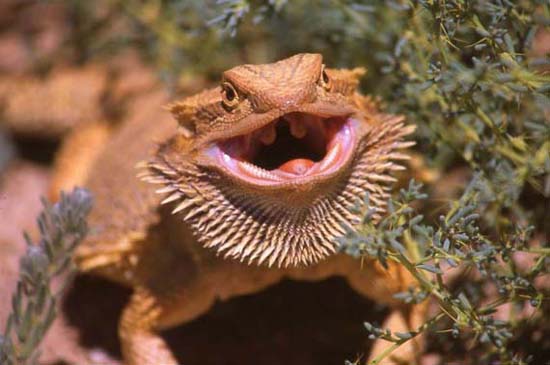10 Signs of a Sick Bearded Dragon You Should Never Ignore
Is Your Bearded Dragon Acting Strange? Here’s What You Need to Know
Bearded dragons are becoming more and more popular as household pets, and for good reason. They can make great companions due to their docile nature and, let’s face it, their cute demeanor. However, as with any pet, owning a bearded dragon requires a certain level of responsibility to ensure they stay happy and healthy.
One crucial aspect of owning a bearded dragon is being able to recognize signs of illness. These reptiles are notorious for hiding their symptoms, so as a pet owner, it’s important to be proactive in looking for subtle behavior and health changes. Here are 10 signs to look out for if you suspect your bearded dragon might be sick.
1. Loss of Appetite
Bearded dragons are voracious eaters and have a reputation for eating almost anything. So, if your bearded dragon suddenly stops eating or seems disinterested in food, it could be a sign that something is wrong. This lack of appetite can be an indication of many illnesses, from parasites to viral infections.
2. Lethargy

Another common sign of a sick bearded dragon is a lack of energy or lethargy. This can manifest as your bearded dragon not moving around as much, being less active or playful, or even just sleeping more often. While bearded dragons can be relatively sedentary creatures, it’s important to know what is normal for your pet so you can spot any behavior changes.
3. Discolored Stool
It’s never a pleasant experience to clean up after you pet’s bowel movements, but it’s important to pay attention to the color and texture of your bearded dragon’s stool. Discolored, runny, or unusually smelly feces can indicate a parasite or bacterial infection.
4. Sunken Eyes

Sunken eyes are a common sign of dehydration in bearded dragons. It can be challenging to recognize dehydration in reptiles, especially since they don’t sweat like humans do. A tell-tale sign of dehydration is wrinkled skin and sunken or dull eyes. Enabling easy access to fresh water by your bearded dragon is important.
5. Unusual Shedding
As bearded dragons grow, they shed their skin. Shedding is normal and usually goes unnoticed; however, if your bearded dragon’s skin appears discolored, patchy, or if they are experiencing difficulty shedding, it can be a sign of an underlying health concern. Unusual shedding often occurs due to improper nutrition or inadequate humid evironment.
6. Abnormal Breathing

If you notice your bearded dragon breathing heavily, gasping, or wheezing, it isn’t normal. Bearded dragons generally breathe quietly and with little effort, so any signs of breathing difficulties should be monitored closely. Breathing issues can be a symptom of respiratory infections, which are common in bearded dragons, as well as other illnesses.
7. Weight Loss

If your bearded dragon’s weight is dropping, it’s a sign of a medical issue. Weight loss is often related to a dragon’s lack of appetite or metabolic problem. Usually, during the shedding or reproduction phase, bearded dragons can lose some weight, but abrupt weight loss is never a good sign, especially if it’s accompanying with other signs of illness like vomiting and diarrhea.
8. Unusual Discharge

Discharging from your bearded dragon’s nose or mouth could be a sign of injury or infection. Be on the lookout for mucus, pus, or blood in discharge from your dragon’s nose, mouth, or eyes. If you detect these signs, seek veterinary check-up as soon as possible.
9. Behavioral Changes
As a responsible pet owner, you should be aware of your bearded dragon’s regular behavior patterns. While all bearded dragons have their distinct personalities, if your pet starts behaving erratically, like attempting to escape from its cage, showing aggression or no longer welcoming human social interaction. These might indicate painful illnesses like injury, parasites digestive problems or other illnesses.
10. Skin & Mouth Diseases

Lastly, bearded dragons are susceptible to a range of skin and mouth diseases. These can occur if your bearded dragon is living in an improper or unclean environment. Symptoms of skin diseases include scaling, discoloration, swelling, and blisters, whereas in mouth diseases, birds might salivate heavily and have a hard time swallowing or develop sores.
Final Thoughts
Bearded dragons can be great pets when kept and cared for properly. Make sure you learn about their unique needs and behaviors so you can spot any signs of illness early on, and as responsible pet owners, ensure a visit to a qualified reptile veterinarian immediately should there be any sign of ill health.
Remember, a happy, healthy bearded dragon is one that is well-nourished, hydrated, and living comfortably in a spacious, clean enclosure.
